They add flavor to baked potatoes, but can dogs eat chives? Read this complete guide before you give chives to your furry friend.
Not all human food is safe for dogs. Some herbs are actually pretty dangerous! Read this guide about chives and dogs to find out whether it is a dangerous food for pups.
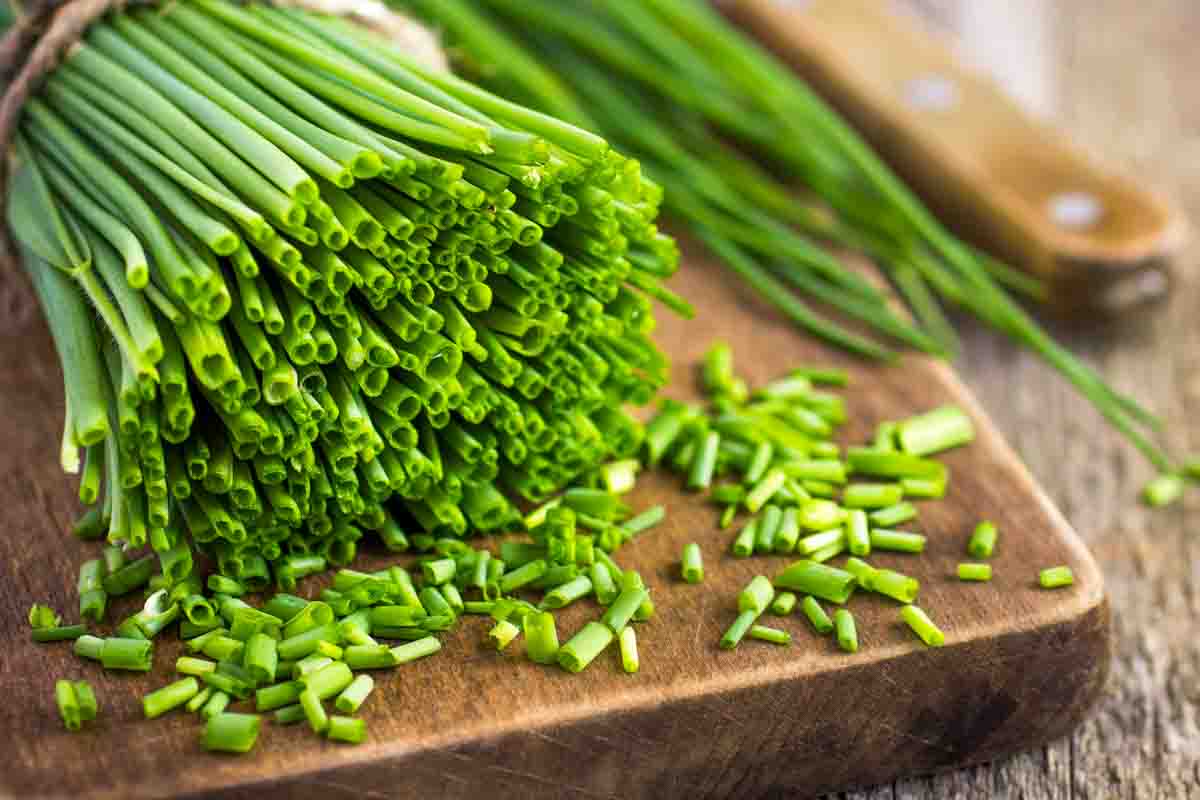
For ultimate pet safety, please ask your vet any questions you have regarding your dog eating chives.
What Are Chives
Chives are a plant grown primarily in North America. They are a member of the allium family of plants, so they are closely related to garlic and onions.
The biggest difference between green onions and chives is that chives don’t have an edible bulb. When we eat chives, we are chopping up and eating the actual plant itself.
They have a mild flavor that tastes a lot like leeks and people eat them cooked, dried, and raw.
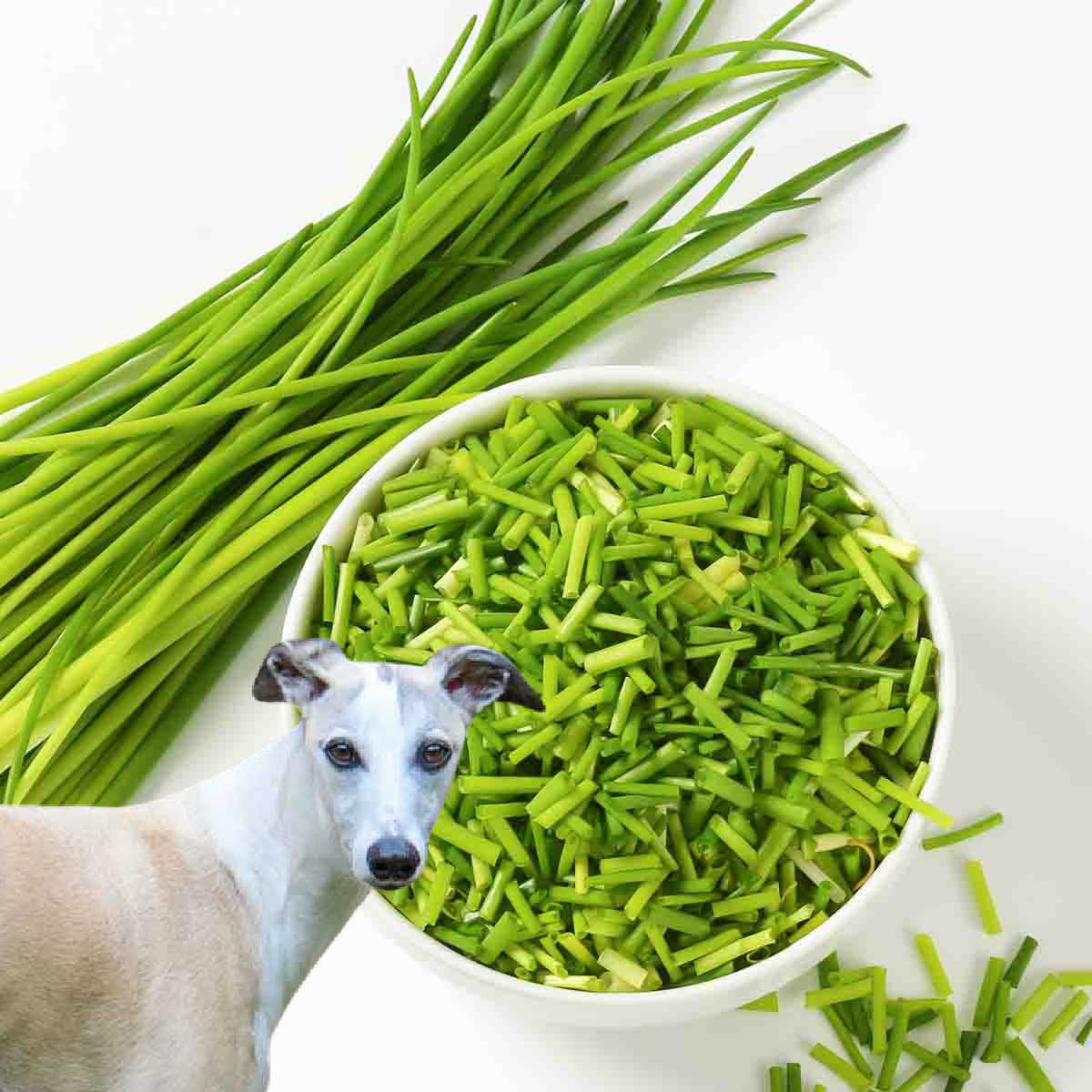
Can Dogs Have Chives
The short answer is no, dogs cannot have chives.
Since chives are in the allium family, they are poisonous to both dogs and cats. This family of plants has a natural deterrent known as organosulfoxides, also known as aklenylcysteine sulfoxides, which is what makes them so toxic.
This will make dogs very sick if they eat them because as they chew them, they convert to sulfur compounds. Then, after this reaction occurs, the dog’s GI tract will digest the chemicals and form Heinze bodies on the red blood cells.
In other words, once Heinz bodies form, it leads to hemolytic anemia, which shows up with things like the breakdown of red blood cells, blood in the urine, high heart rate, panting, and vomiting.
They also contain n-propyl disulfide which causes damage to the hemoglobin in red blood cells.
Chive poisoning and the symptoms of onion toxicity are similar. Both include:
- Abdominal Pain
- Rapid Heart Rate
- Low Blood Pressure
- Difficulty Breathing
And in severe cases, even red blood cell damage or kidney damage.
If your dog is showing any of the above symptoms, please seek veterinary care immediately.
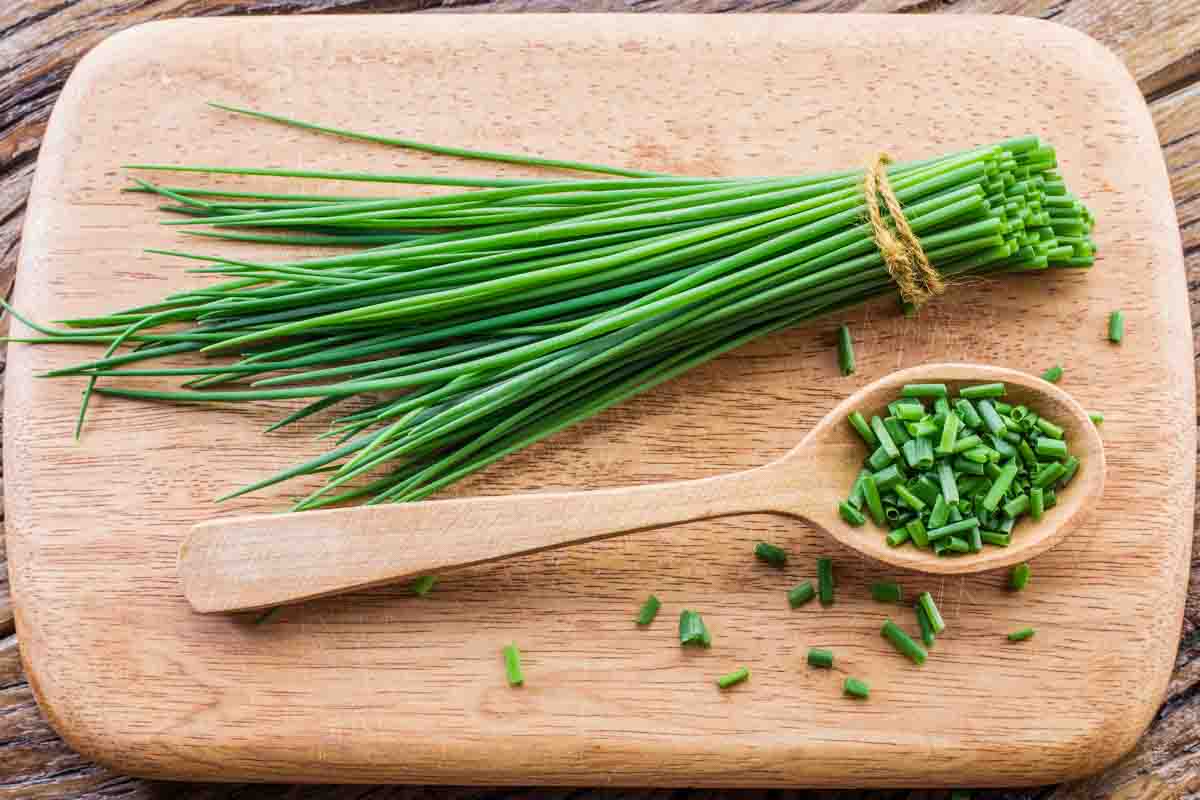
Can Dogs Eat Garlic Chives
Absolutely not. Dogs should never eat garlic, onion, chives, or any combination of them. The risk of garlic poisoning is not worth it. Even small amounts are dangerous.
Your dog’s body weight isn’t important, all dog owners should be aware that all members of the allium family of plants are dangerous for dogs to eat.
Are Chives Bad For Dogs
If your dog eats a combination of kitchen herbs that includes garlic, onion, leeks, and chives, it could give them negative side effects.
Always keep chives away from dogs. In fact, some breeds are even more sensitive to chives than others. Dogs of Japanese descent (like Akita and Shiba Inu) are at a higher risk of experiencing the toxic effects of chives.
How Much Chives Is Toxic To Dogs
It only takes a very small amount of chives. Toxicosis may occur if 0.5% or more of the animal’s body weight is ingested. That equates to about 1/3 of a teaspoon for every 10 pounds.
Types of Chives and Dogs
Dogs can get chive poisoning from all types of chives, whether they are raw, cooked, or dried. Even though they are kitchen staples and used in lots of human food, your canine companions should never eat any of the following types of chives:
- Chinese Chives
- Onion Chives
- Wild Chives
- Cooked Chives
- Dried Chives
Do Dogs Eat Chives
Yes, dogs are curious creatures. It’s very possible for your furry friends to want to explore and eat chive flowers or chive plants if they are growing outside.
That’s why it’s a good idea to keep these plants out of the reach of your dog. Put a fence around them or grow them on a window sill where they can’t reach them.

Can Dogs Eat Cream Cheese and Chives Crackers
Even the powder form of chives on crackers is dangerous for dogs. Do not let your dog eat any type of processed foods that include chives, garlic, or onions in the ingredient list.
My Dog Ate Chives
If you think your dog ate chives, the first thing you should do is call your dog’s veterinarian immediately.
Clinical signs of illness after eating chives might occur pretty quickly, but most symptoms won’t appear for a few days. But the sooner you get your dog seen, the better your dog’s vet can help them.
The most obvious sign of chive poisoning is inflammation of the gastrointestinal tract, which shows up in vomiting in diarrhea.
Remember, your dog’s symptoms will depend on how much they ate. Larger amounts of chives will cause more severe reactions.
Here’s what you can expect from the vet. They might do a urinalysis of your dog and other testing, like a biochemistry profile, to see the extent of the poisoning. They will need to know your dog’s blood oxygen levels and red blood cell count.
A combination of history and current health profile will help your dog’s veterinarian know how to treat them.
And if you don’t know if your dog actually ate chives, the testing will help your vet know if it was something else – like vitamin K toxicity.
Very rarely some dogs need a blood transfusion. This is why it is so important to call the vet as soon as possible if you think your dog ate chives.
Final Thoughts
As you can see, chives are a big NO for dogs. Do not let your dog eat any food that is seasoned with chives and definitely keep them away from fresh chive plants. All types of the allium family are off-limits to dogs.
More Dog Food Resources
What other human foods are safe for dogs? Here are some more resources about different herbs dogs can and can’t eat:
- Can Dogs Eat Basil
- Can Dogs Eat Cilantro
- Can Dogs Eat Dill
- Can Dogs Eat Ginger
- Can Dogs Have Nutmeg
- Can Dogs Eat Oregano
Find lots of information about human food dogs can eat (and ones they can’t) here on Spoiled Hounds!
📌 Pin this to save and share 📌
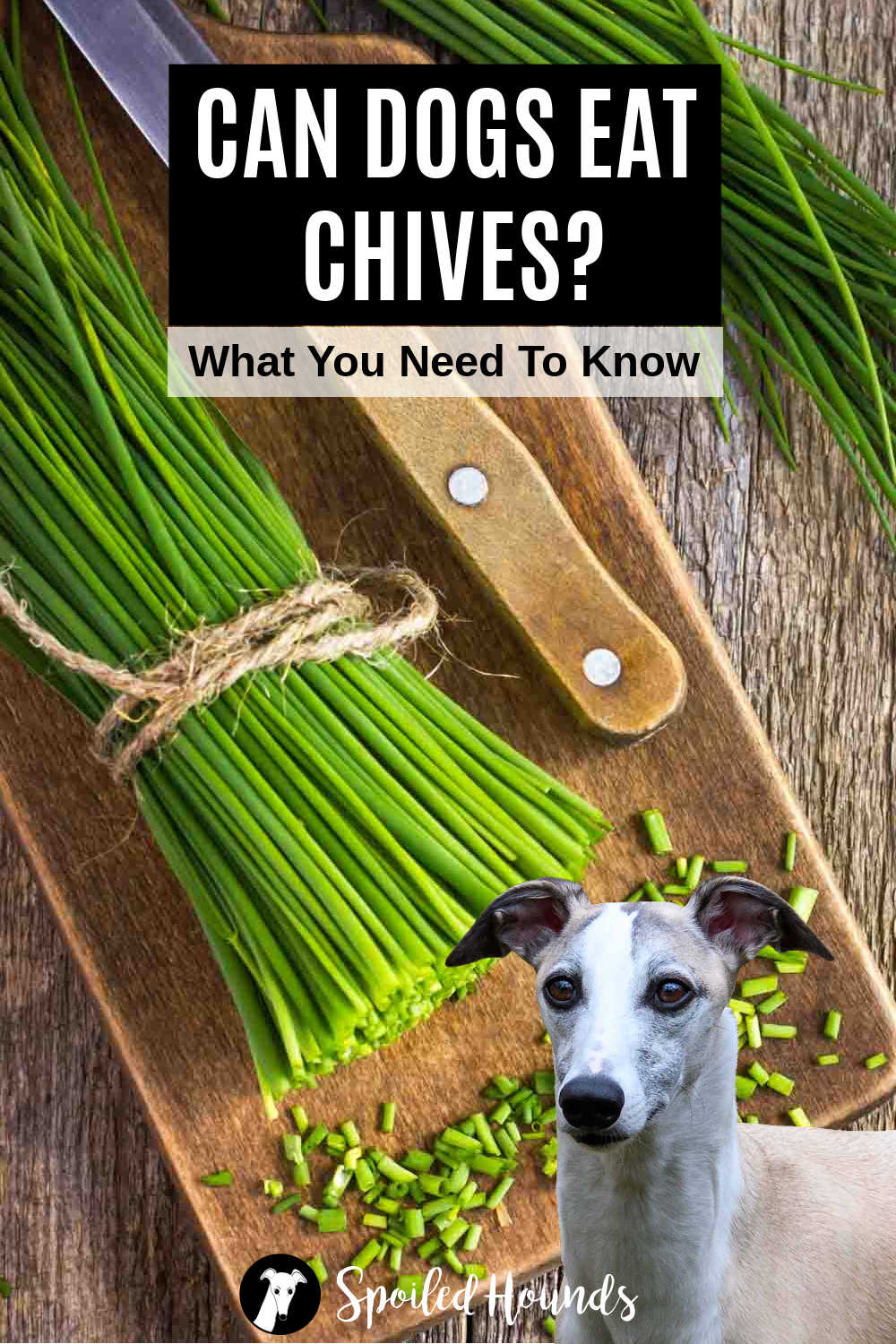
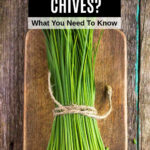
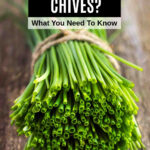
Can you tell that are all green vegetables good for Dogs??
Hope you will reply..
Not all green vegetables are good or safe for dogs to eat.